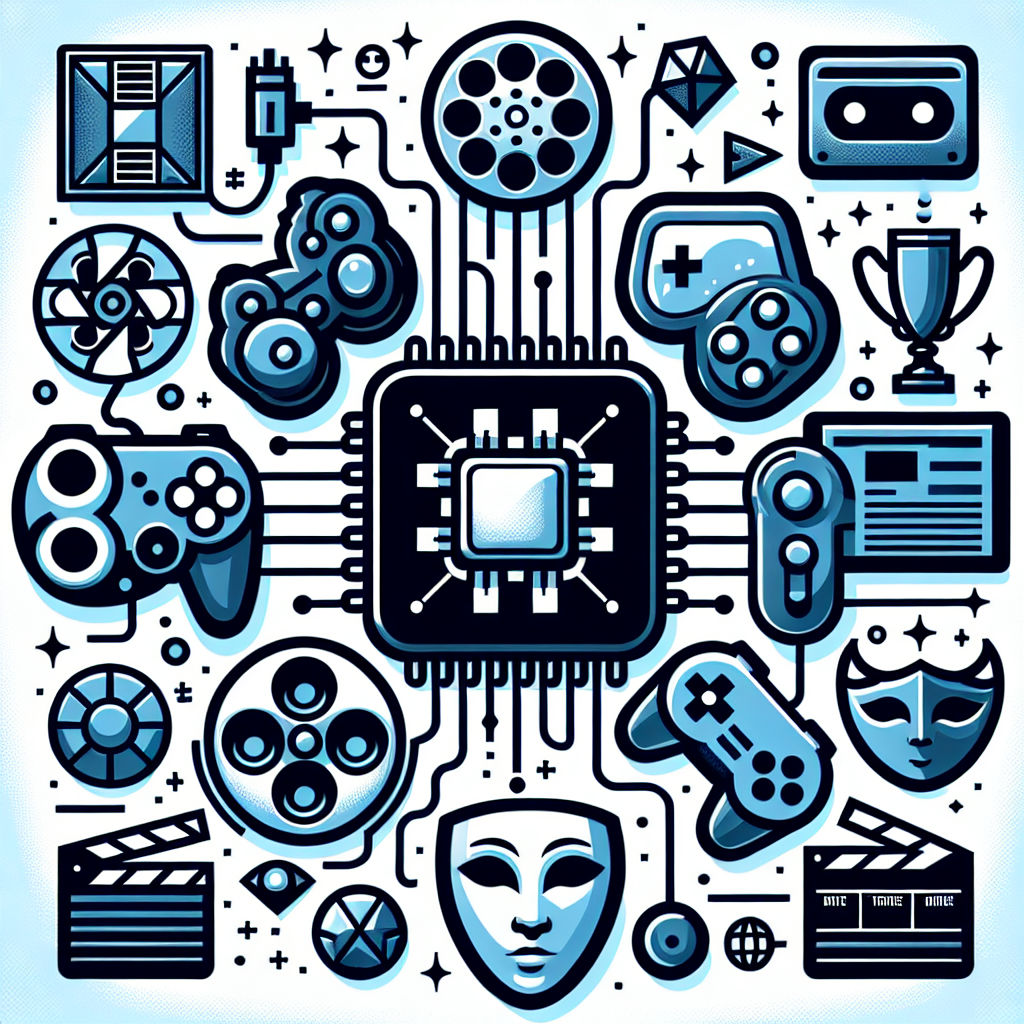The Influence of AI on Interactive Experiences in Entertainment
Artificial Intelligence (AI) has become an integral part of our daily lives, from personal assistants like Siri and Alexa to recommendation systems on streaming platforms like Netflix and Spotify. In the world of entertainment, AI is also playing a significant role in enhancing interactive experiences for audiences. From video games to virtual reality experiences, AI is revolutionizing the way we engage with entertainment content.
One of the most prominent examples of AI in entertainment is in video games. Game developers are using AI algorithms to enhance gameplay, create more dynamic and realistic environments, and improve the overall gaming experience. AI-powered NPCs (non-playable characters) can now react intelligently to player actions, making the game world feel more alive and immersive. For example, in the game “Red Dead Redemption 2,” AI-controlled characters have their own schedules and routines, making the game world feel more dynamic and realistic.
AI is also being used to personalize gaming experiences for individual players. By analyzing player behavior and preferences, AI algorithms can tailor in-game challenges, rewards, and storylines to suit each player’s unique playing style. This level of personalization not only enhances the player’s experience but also keeps them engaged and coming back for more.
AI is also making waves in the world of virtual reality (VR) entertainment. VR experiences are becoming more immersive and interactive thanks to AI-powered algorithms that can generate realistic environments, enhance spatial awareness, and even create dynamic AI-driven characters to interact with. For example, in VR games like “Beat Saber,” AI algorithms are used to track player movements and adjust the difficulty level in real-time to provide a challenging yet enjoyable experience.
In the realm of film and television, AI is also making an impact on interactive entertainment. Streaming platforms like Netflix are using AI algorithms to recommend content to users based on their viewing history, preferences, and behavior. This personalized recommendation system not only helps users discover new content but also keeps them engaged on the platform for longer periods of time.
AI is also being used to enhance the post-production process in filmmaking. AI-powered algorithms can analyze footage, edit scenes, and even generate special effects, making the filmmaking process more efficient and cost-effective. For example, AI algorithms can be used to remove unwanted objects from a scene, enhance visual effects, or even create lifelike CGI characters.
Overall, AI is transforming the way we interact with entertainment content, making it more personalized, immersive, and engaging. As AI technology continues to advance, we can expect to see even more innovative uses of AI in entertainment in the future.
FAQs:
1. How is AI enhancing interactive experiences in entertainment?
AI is enhancing interactive experiences in entertainment by creating more dynamic and realistic environments in video games, personalizing gaming experiences for individual players, improving VR experiences, and enhancing the post-production process in filmmaking.
2. What are some examples of AI in entertainment?
Some examples of AI in entertainment include AI-powered NPCs in video games, personalized recommendation systems on streaming platforms, AI-enhanced VR experiences, and AI-driven post-production processes in filmmaking.
3. How is AI impacting the gaming industry?
AI is impacting the gaming industry by enhancing gameplay, creating more immersive environments, personalizing gaming experiences for players, and improving overall player engagement.
4. How is AI being used in virtual reality entertainment?
AI is being used in virtual reality entertainment to create more immersive and interactive experiences, track player movements, adjust difficulty levels in real-time, and generate dynamic AI-driven characters to interact with.
5. What are some future trends in AI and entertainment?
Some future trends in AI and entertainment include the use of AI to create more lifelike CGI characters, enhance virtual reality experiences, personalize content recommendations even further, and revolutionize the filmmaking process with AI-powered post-production techniques.

